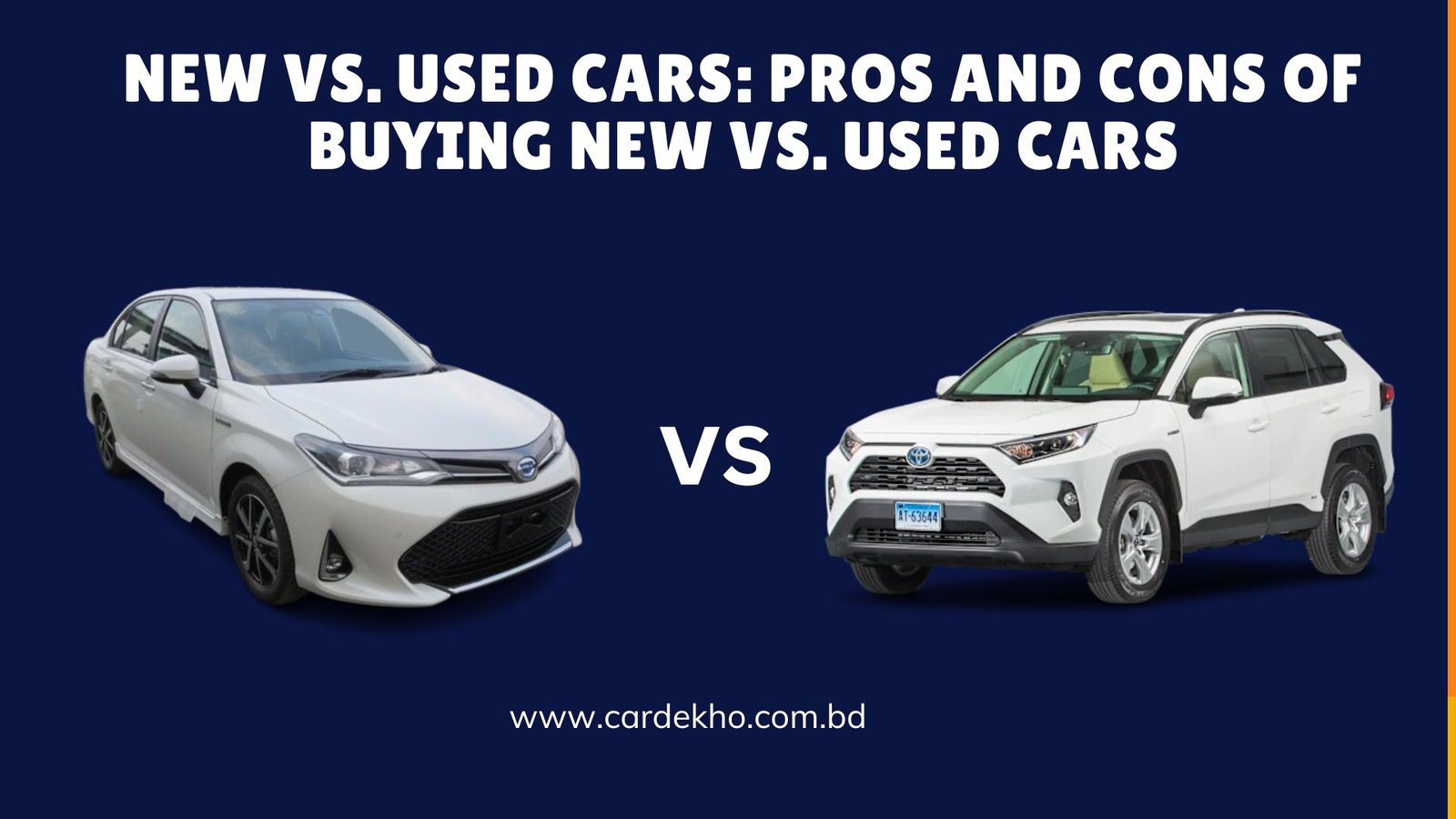Buying a car is a significant decision, and one of the first choices you’ll face is whether to buy a new or used car. Each option has its advantages and drawbacks, and your decision should depend on your budget, preferences, and long-term goals. In this article, we will explore the pros and cons of both new and used cars to help you make an informed choice.
Buying a New Car
Pros:
- Latest Technology & Features: New cars come equipped with the latest advancements in safety, fuel efficiency, and entertainment systems.
- Manufacturer Warranty: Most new cars come with warranties covering repairs for several years, giving you peace of mind.
- Better Fuel Efficiency & Emissions: Newer models often have better fuel economy and lower emissions due to advanced engine technology.
- No History of Wear & Tear: Since the car is brand new, you won’t have to worry about hidden damages or mechanical failures from previous use.
- Easier Financing Options: Banks and financial institutions often provide lower interest rates and better loan terms for new cars.
Cons:
- Higher Cost: New cars come at a premium price, making them more expensive than used ones.
- Rapid Depreciation: A new car loses around 20-30% of its value within the first year of ownership.
- Higher Insurance Premiums: Since new cars have a higher value, their insurance costs tend to be more expensive.
- Limited Model Availability: If you want a specific model that is discontinued or not available, you won’t find it as a new car.
Buying a Used Car
Pros:
- Lower Purchase Price: Used cars are significantly cheaper than new ones, making them more budget-friendly.
- Slower Depreciation: The previous owner has already absorbed the major depreciation, meaning your car retains value better.
- Lower Insurance Costs: Used cars generally have lower insurance premiums compared to new cars.
- More Choices within Budget: With a given budget, you might be able to afford a higher-end model if you opt for a used car.
- Less Stress Over Minor Damages: Since the car is already used, minor scratches or wear and tear won’t feel as concerning.
Cons:
- Higher Maintenance & Repair Costs: Used cars may require more frequent servicing and repairs due to their age and wear.
- Uncertain Vehicle History: If the car has had multiple owners, there might be hidden issues or past accidents that affect performance.
- Limited or No Warranty: Unless you buy a certified pre-owned vehicle, used cars often come without a warranty, leading to higher risks.
- Outdated Features: Older cars may lack modern safety features, entertainment systems, and fuel-efficient technology.
- Higher Loan Interest Rates: Banks often charge higher interest rates for used car loans compared to new cars.
Which One Should You Choose?
The decision between a new and used car depends on your individual needs and financial situation. If you prioritize the latest features, long-term reliability, and warranty coverage, a new car might be the right choice for you. On the other hand, a used car can offer great value if you are looking for a more budget-friendly option with lower depreciation.
Final Thoughts
Before making your purchase, thoroughly research the market, compare models, and assess financing options. Whether you choose a new or used car, ensure that it aligns with your budget and driving needs. For more insights on car buying, pricing, and comparisons, visit cardekho.com.bd and make an informed decision!

